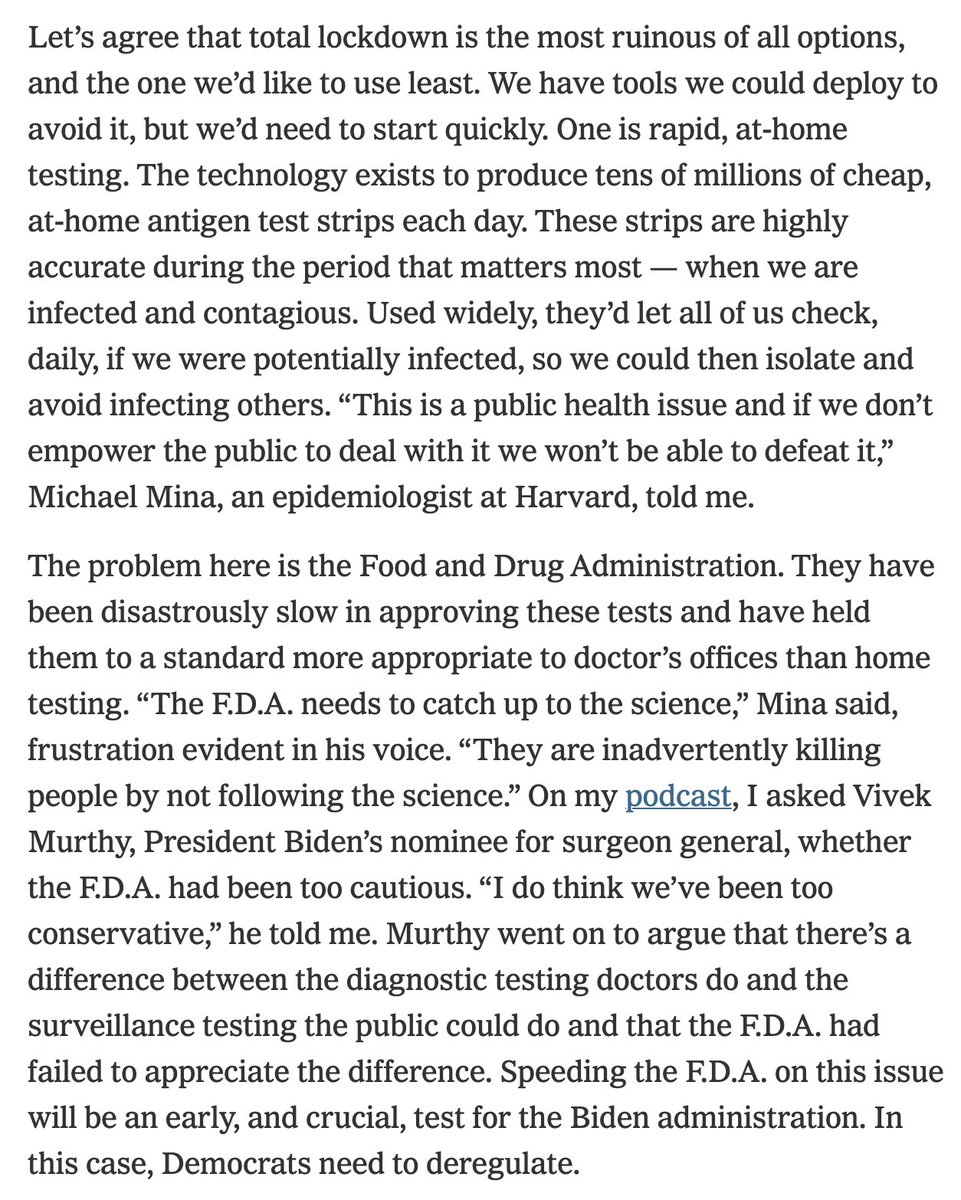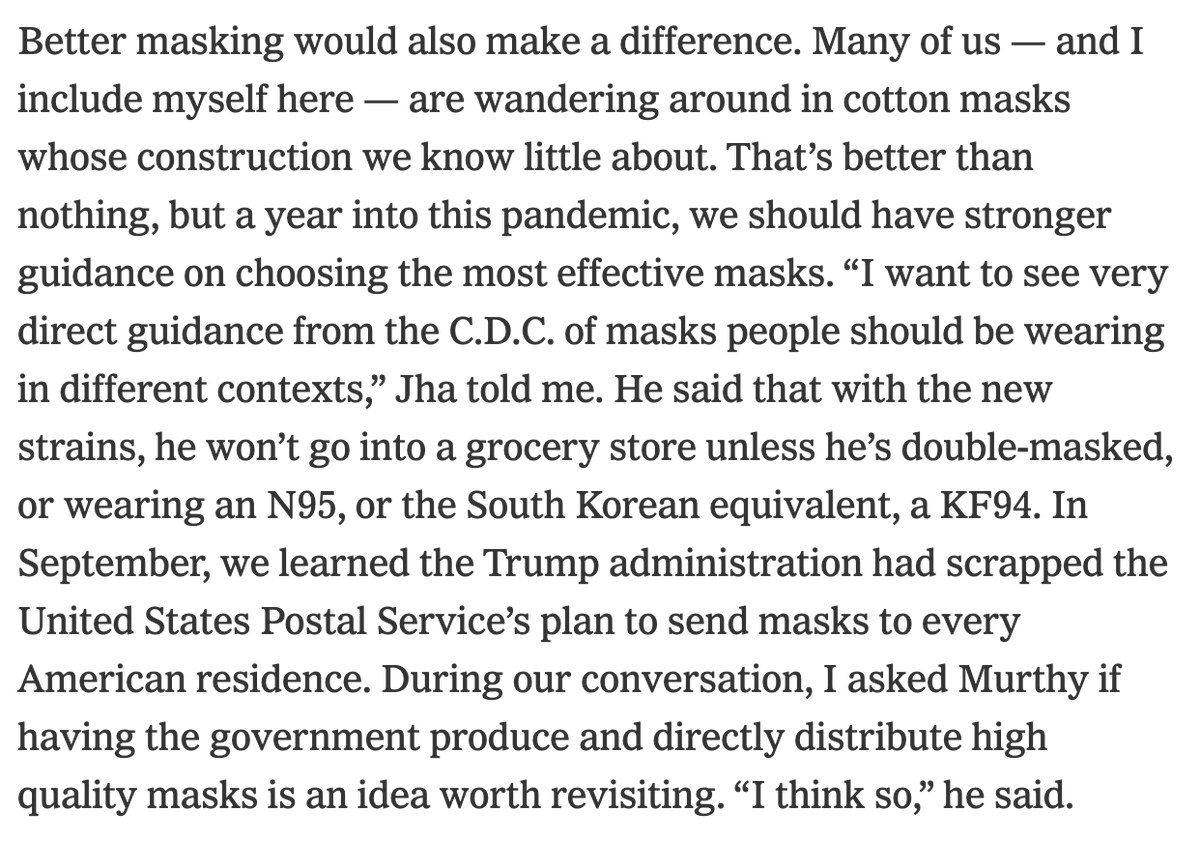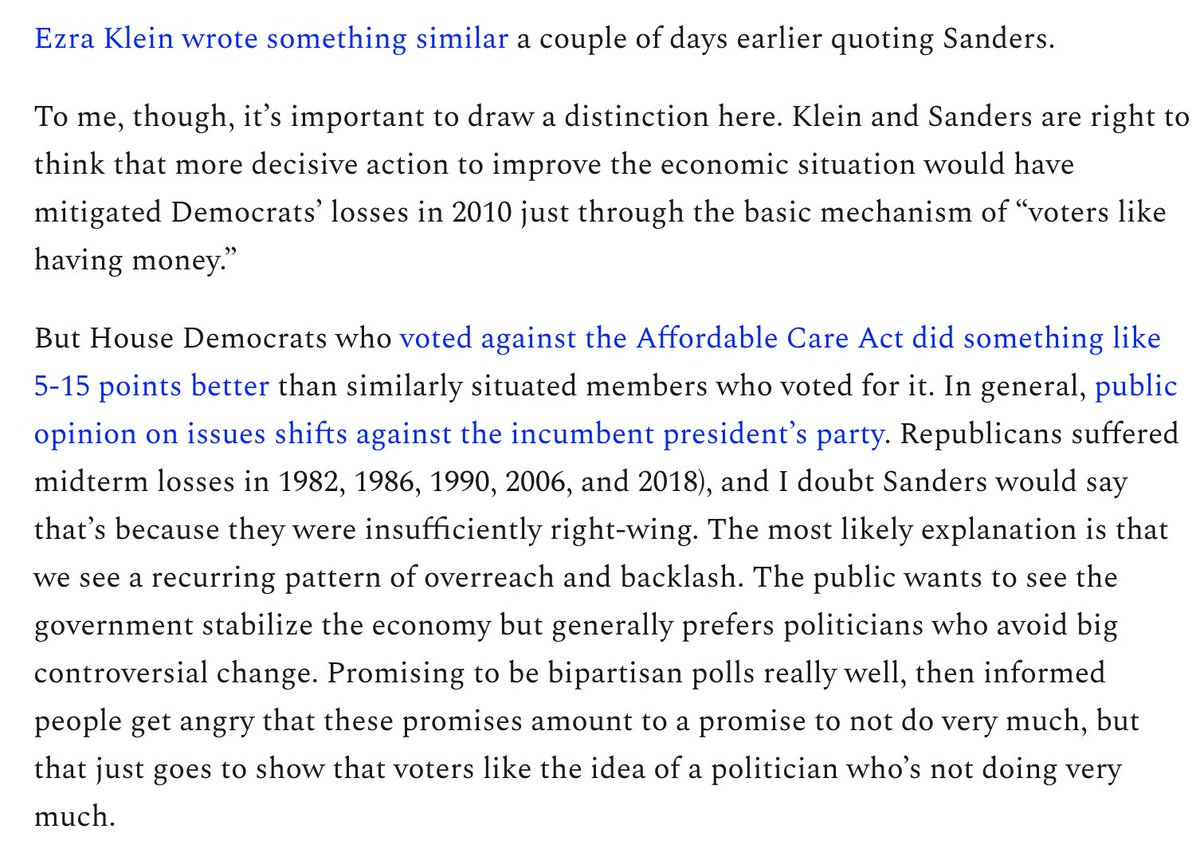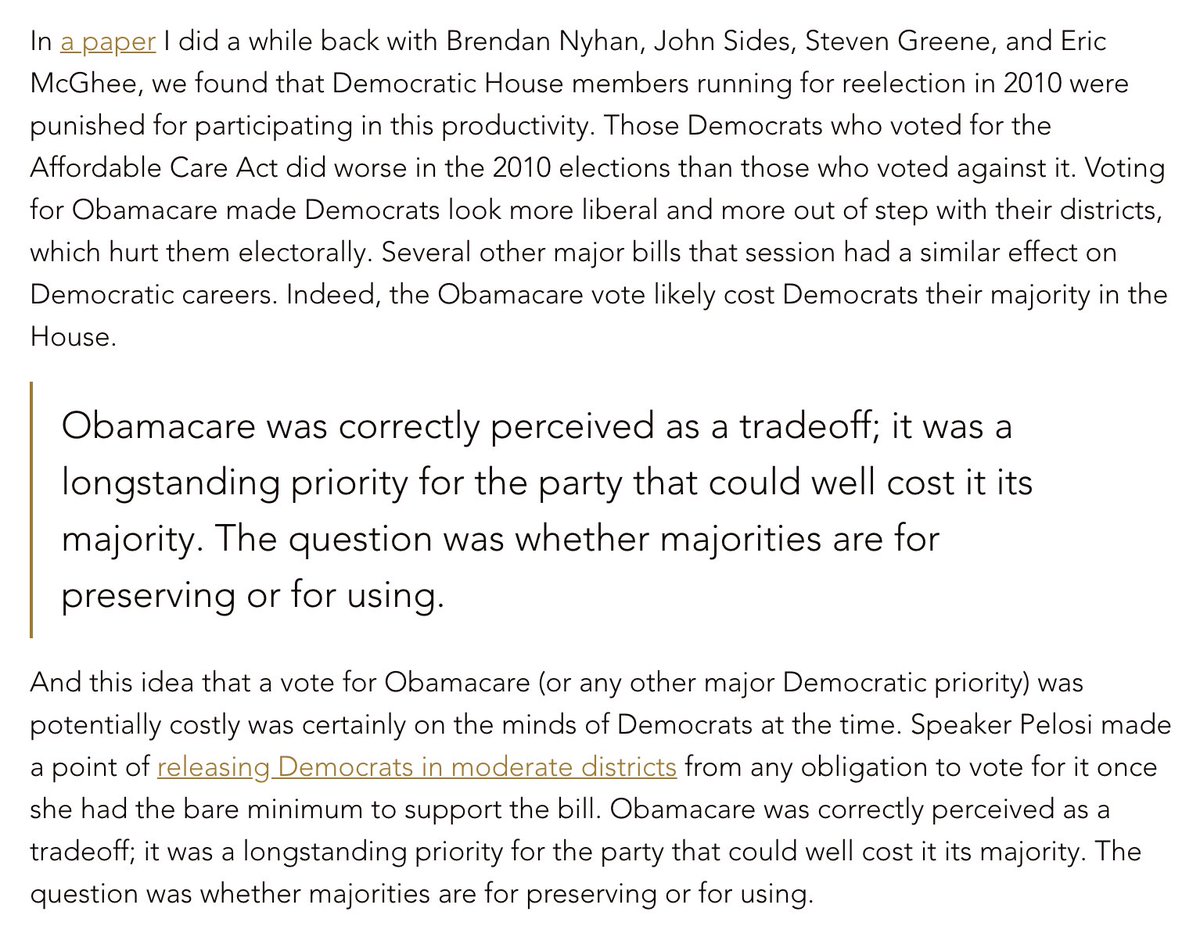
This is a point I've been making forever but people refuse to believe it. The filibuster *diminishes* the incentive to compromise because it lets the minority kill bills and nominations outright. Without it, the choice is a protest "no" vote or compromise where you get something.
https://twitter.com/JonWalkerDC/status/1354131137124126720
So much of the confusion in filibuster discourse comes from thinking that bipartisanship is something the majority needs to be incentivized to seek, rather than something the minority needs incentives to seek. But the reverse is true.
There's obvious reasons for the majority to want bipartisan support: Things are more popular if they're bipartisan, and the majority benefits from popular governance.
The minority has the reverse incentives: they lose if the majority is seen as governing well.
The minority has the reverse incentives: they lose if the majority is seen as governing well.
McConnell always understood this dynamic perfectly well: theatlantic.com/magazine/archi… 

As I've argued before, given the zero-sum incentives of elections, bipartisanship is irrational for the minority to offer in most circumstances. The addition of the filibuster, which lets them obstruct more effectively, only worsens that problem. vox.com/policy-and-pol…
I want to be clear: I don't think getting rid of the filibuster will usher in some new era of bipartisanship. But it would make governance easier, and lead to better incentives at the margin.
As a broader point, there's something peculiarly American about this idea that governance is only legitimate if it's bipartisan. In other systems, it's understood that the governing party governs, and the opposition party opposes. And those roles make sense!
The public can decide whether the governing party did a good job or whether the opposition party was right in their critiques. This desire to see disagreement surmounted and consensus reached does not lead to better policymaking than clear party agendas and easy accountability.
• • •
Missing some Tweet in this thread? You can try to
force a refresh






